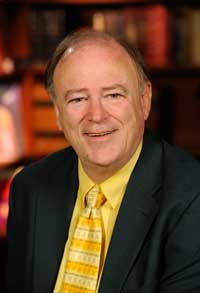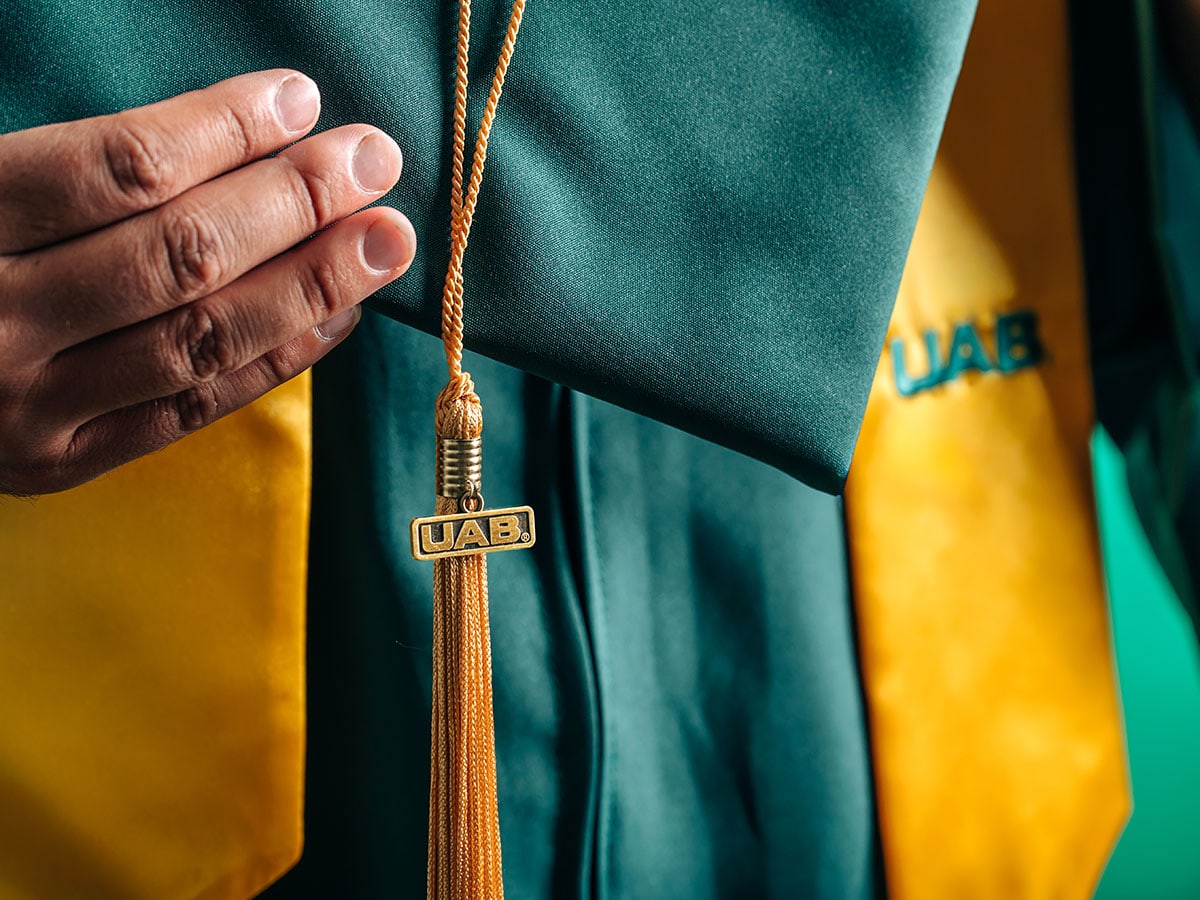 UAB Department of Communication Studies Professor Dr. Larry Powell, specializes in political communications and has been recognized by Communication Monographs as one of the top 50 active communications researchers in the U.S. He has also been a consultant for numerous candidates running for state and local office. We asked him to weigh in on the effectiveness of this fall's Republican debates, how they have been moderated, and whether the candidates’ accusations of media bias are merited.
UAB Department of Communication Studies Professor Dr. Larry Powell, specializes in political communications and has been recognized by Communication Monographs as one of the top 50 active communications researchers in the U.S. He has also been a consultant for numerous candidates running for state and local office. We asked him to weigh in on the effectiveness of this fall's Republican debates, how they have been moderated, and whether the candidates’ accusations of media bias are merited.How did the CNBC debate compare to previous debates held by other networks?
Powell: I think they’ve been different. In the case of Fox News, I think their questions have been remarkably tough. My concern with Fox was that they were going to be easy on the Republicans. But Megyn Kelly was very harsh on Trump and she was pretty hard on some of the others as well. She, quite frankly, did a very good job, and they haven't gotten any easier with the second two debates. If they get easier after the round of criticism surrounding the October 28 debate it would be a disservice to the public; the public needs to know how the candidates will respond to tough questions.
What did you think of the way CNBC moderators ran things?
Powell: I thought the criticism, that they did not give each person equal time, was legitimate. If you weren't there in the middle of the stage, for the most part, you were not getting the types of questions that you really should. Kasich had to jump in a few times to get his point across, and I think he's a legitimate candidate. He's just not getting support or coverage. I think he's the type of person that as Carson and Trump weaken, which I think they will, that some of their support will go to him.
I think the media has been preoccupied with Trump and Carson, and part of it is because reporters are just so surprised that those people are leading the election. They did not anticipate this at all; they've never covered an election like this before, so their whole coverage is just “We don't know how to cover a campaign like this,” and that leaves out a bunch of people.
Do we have a liberal media?
Powell: We have some liberal reporters, but the media as a whole is conservative. That's because many of the owners of media companies are conservative and tend to be wealthy, but they hire reporters who they believe will do a good job of attracting an audience. The best media will be both liberal and conservative. In “The New York Times,” for example, Paul Krugman is about the most liberal columnist that one could find, and his column runs on Friday on the right-hand side of the page. David Brooks is just about as conservative a commentator as it is possible to find, and they've got him running on the left-hand side of the page. I find it ironic that they've got them running on the same day, the same page, but reversed.
Why do the Republicans tend to attack the media for bias?
Powell: It goes back to 1968 when Richard Nixon was campaigning for president. Nixon hated the press; he did not have a good relationship with them. He blamed them for losing the election to John F. Kennedy, and he famously said after losing in 1960, that the press would not have Richard Nixon to kick around anymore and that he was getting out of politics. He came back in 1968, and the first thing he did was that he worked on changing the name of the press to the “media.” He never referred to the reporters as representing the press; they were always representing the “media.” He did that because he thought journalism itself was viewed as a pretty objective process, and he thought that he could attack the media with negative connotations, and he did. By the end of the election, he had not only won the presidency but he had changed the terminology. People have not referred to the press since 1968; it's always been the “media.”
How much does media line of questioning mirror the concerns of the general population?
Powell: Not much. There are some issues that both the media and the public consider important and those will show up occasionally. A lot of things that the media considers important are things that the public as a whole doesn't think about that much, but that's why reporters need to be asking those questions. The public will not think about asking those questions because they don't realize that there's a question that needs to be asked.
What are ways to pick out biases within the debates?
Powell: Well, obviously the candidates always going to be giving you a biased view, because they're giving you their view. Immediately after the debates, there's usually a here's what happened show and it may or may not be biased. It's going to be more biased than not because the people that are talking are having to give you their gut reaction pretty quick. I think the smarter way to look at those yourself is to look for mistakes. Sometimes the media will help you identify mistakes because they'll do a follow-up question that says, “well that doesn't work” or “that's wrong” or that sort of thing. And the follow-up question will be a clue that this is something that could be a problem that grows bigger over the next few days.
How have the Democratic debates differed from the Republican ones?
Powell: On the Democratic side, the differences on the issues are largely nuanced in nature. By and large you have to be for gun control in some form to run as a Democrat and you have to be opposed the Republican plans on immigration. So you end up with a lot of agreement, just with differences on how much you would do about each one.
Sarah Buckelew is a UAB Digital Media Fellow who is in the process of creating an IDM in Documentary Film Studies. She also works in writing and is always looking to gain new media skills.


